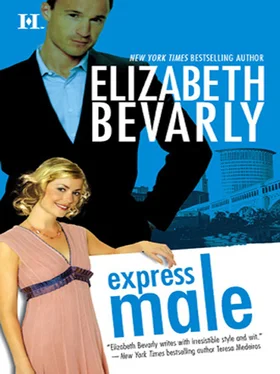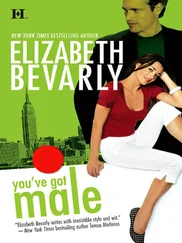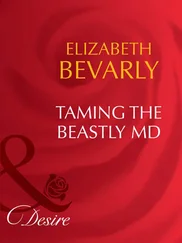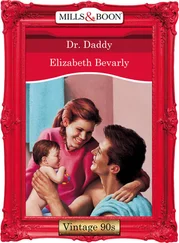To the left of the furnishings, French doors opened into what appeared to be a dining room, though Noah could only see part of it from where he stood—an expanse of wall covered in old-looking wallpaper of dogwood blossoms, the corner of a lace-covered table, the end of a china cabinet filled with enough china to make Martha Stewart look like a slacker.
Scanning to the left side of the living room, he saw a baby grand piano sitting in front of a big bay window whose window seat was upholstered by a different kind of floral fabric from the sofa. Artfully scattered throw pillows covered one end, while sheet music was stacked neatly at the other. A feminine-looking briefcase sat on the floor near the piano, and sheets of lined paper, some filled with handwritten music—were stacked on the bench.
Directly in front of him was a long hallway, the hardwood floor, like the floors of the living room, covered by a worn floral rug. But where the walls in the living room were the dark blue of a twilit sky, the walls of the hallway turned to butter yellow. Taking a few steps to the left, Noah saw that the hall walls were also covered on both sides by scores of framed photographs.
Whoever lived in this house seemed to have a long history here. And whoever lived here was obviously very comfortable living here. He looked at Lila again. She was standing now, laughing at the cats who were still twining around her ankles. And somehow, she looked perfectly at home.
No, Noah told himself. No way.
“So you grew up in this house?” he asked carefully.
She looked up at him with a puzzled expression. “Lived here my whole life,” she told him. “Except for my time at OSU. My father had retired by the time I graduated, and he was getting on in years, so I moved back home with him to live.”
“And you’re a music teacher?” he asked, remembering how adamant she had been about that.
“For my livelihood, I am,” she said. “And I work at Lauderdale’s to bring in a little extra. My real love is song-writing and composing. I haven’t sold anything yet, but I haven’t been pursuing publication for very long.”
Noah nodded slowly, his mind working fast. Maybe what Gestalt said was true. Maybe Lila really did believe she was this Marnie Lundy person. Maybe she’d believed it for the past five months. She appeared to have been living in this house for some time, and the cats obviously knew her well. When he got back to OPUS, he’d run a check on the name Marnie Lundy and see what came up. See if maybe she just appeared out of thin air five months ago.
What could have happened to Lila to drive her over the edge this way? he wondered. It must have been something heinous to have messed with someone as strong—and as dangerous—as she was.
“This house reminds me of the one where I grew up,” he said.
“Really?”
No, not really. He’d grown up in the lap of luxury. His parents had employed servants who lived in bigger houses than this. “Yeah,” he lied. “Except I spent my childhood in Cincinnati.” That much, at least, was true.
“That’s a wonderful city,” she said. “I have a good friend from college who lives down there and we still try to get together once a month, either here or there.”
Of course she did, Noah thought, marveling at just how deeply a person could clinically delude herself.
“Do you mind if I have a look around?” he asked. “It would almost be like revisiting my childhood.”
She smiled at that. “Go ahead. I have to feed Edith and Henry.”
He narrowed his eyes. “You named your cats Edith and Henry?”
“Actually, my father did. After Edith Wharton and Henry James. He was a professor of literature, specializing in the Gilded Age.”
Of course he was, Noah thought. Naturally Lila, who was the offspring of a showgirl hooker and didn’t even know the identity of her father, would create such a fantasy father when she was losing her mind. It made perfect sense.
“Well, I wouldn’t want to keep Edith and Henry from their dinner. Breakfast,” he quickly corrected himself when he remembered what time it was.
Lila took off through the dining room with the cats running alongside her, and Noah headed into the hallway to check out the gallery of photographs. Most of them were old black-and-whites of people he didn’t recognize. But others, not quite as old, made his stomach go tight.
Lila. As a girl. As a teenager. In this very house. In one shot, she was wearing a graduation cap and gown, even though Noah knew for a fact—or, at least, had thought he knew for a fact—that she never formally graduated from high school. But she didn’t look old enough to be in college in the photo. And there was a man standing beside her, bearded, bespectacled, old enough to be her father—maybe even her grandfather—with one arm slung proudly over her shoulder.
In another shot, an adolescent Lila was blowing out the candles on a birthday cake that said Happy 13th Birthday…somebody. Noah couldn’t make out the name from the camera angle. In another photograph, she was elementary-school aged, standing in the backyard with the garden hose arcing water above her, wringing wet and laughing. In yet another, she looked to be in middle school, wearing a full-length gown with a corsage on her wrist, a dark-suited boy the same age standing awkwardly beside her.
And then another, much more recent photo of Lila, at a time when she should have been working for OPUS. Instead, she was sitting on the piano bench not a dozen steps from where Noah stood, a Christmas tree behind her, a glass of what looked like eggnog in her hand and fake reindeer antlers lit with red and green lights on her head. Not at all the sort of whimsy in which Lila would indulge.
Panic rose in Noah’s chest, and he strode back into the living room, to the photographs on the mantelpiece, hoping they offered more insight. But his gaze strayed instead to the bookcase, falling on a row of high-school yearbooks. Hastily, he jerked down the one closest to him, dated 1987. He did some quick mental math. Lila would have been a freshman, so he opened it to look for that class. His attention went instead to the plethora of handwriting on the inside cover, dozens of different signatures, all looking like teenaged writing, all messages inscribed to “Marnie.”
Heat splashed through his belly. Shoving pages to the left, he found the freshman class and looked not for Moreau, but for Lundy. Sure enough, Marnie was there, looking just like Lila would have looked when she was in ninth grade. Except that, knowing what he did of Lila’s life when she was that age, her expression would have been sullen, angry and scared. Marnie Lundy fairly beamed from the page, an obviously happy, well-adjusted kid.
Noah pulled down the next yearbook and found Marnie Lundy as a sophomore, and the inside covers once again obscured by good wishes from what seemed to be the entire class. The next two yearbooks held more of the same.
“Agent Tennant, what are you doing?”
Noah spun around at the question and saw Lila—no, Marnie, he made himself admit—framed by her dining-room doors, staring at him as if she were very, very sorry she had allowed him into her house.
“I’m sorry,” he apologized. And then he laughed anxiously. Boy, was that an understatement. “I mean…” He faltered, studying her again. She was Lila. But…not. She looked like her, sounded like her, even moved like her. But she wasn’t her.
“You’re not Lila,” he said, knowing the declaration must sound ridiculous to her. “You really are Marnie Lundy.”
“I know that,” she said, her voice edged with impatience. “That’s what I’ve been telling you all night. I thought you realized it. I thought that was why you let me come home.”
Читать дальше












